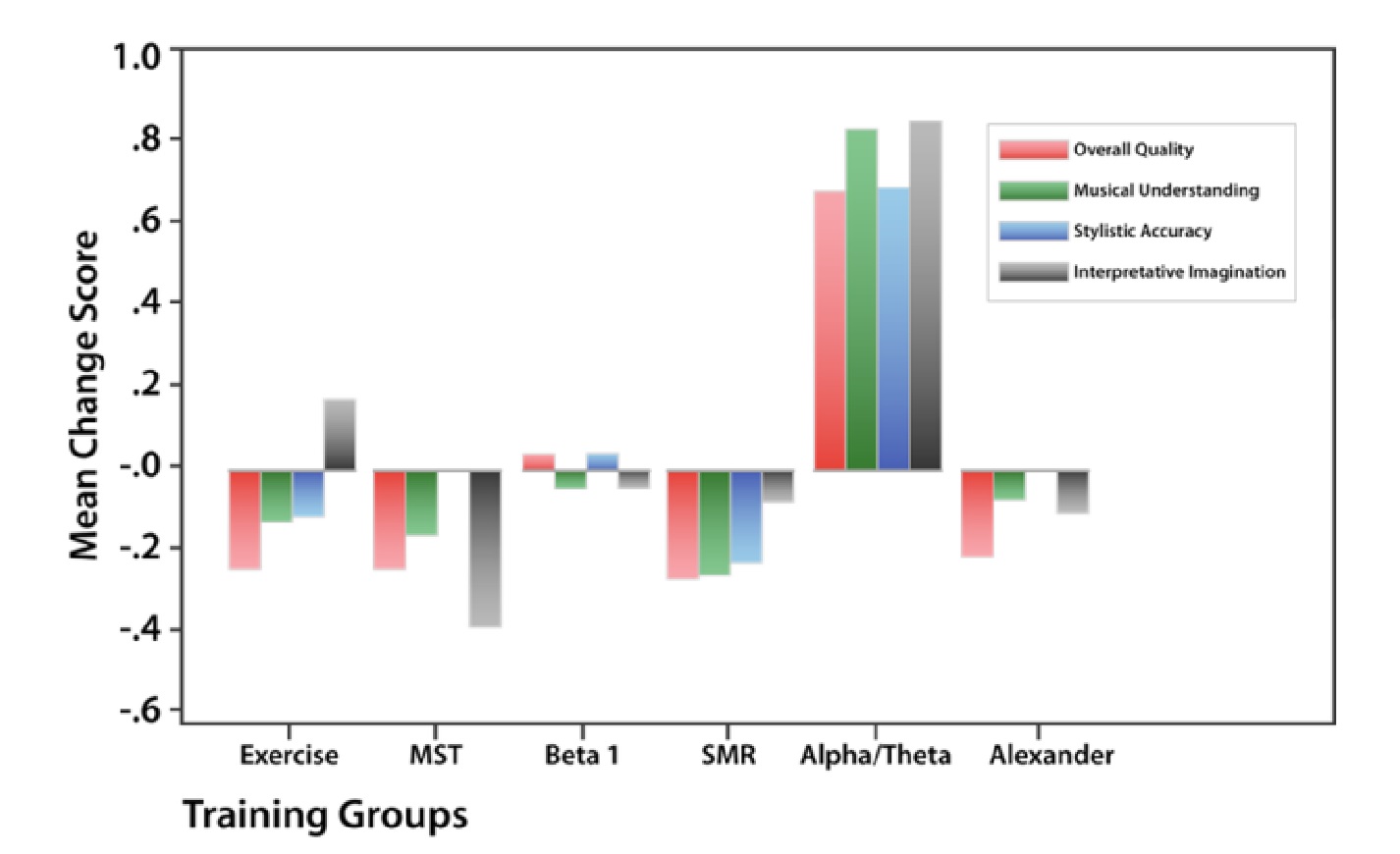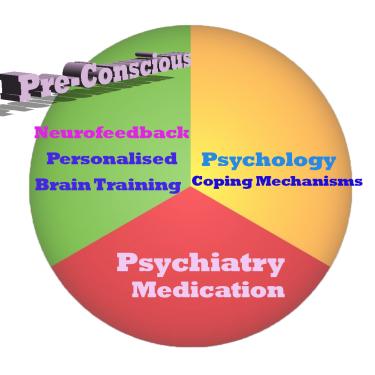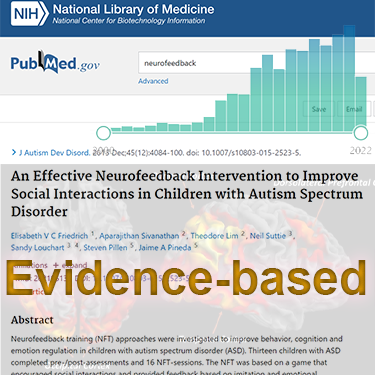Neurofeedback training promotes a calm mental focus – the foundation of faster, efficient performance, and limitless creative energy.
A calm, well-regulated brain is able to get in ‘the zone’ quicker, in any performance-oriented scenario. Neurofeedback works on improving self-control of energy and emotions, regulating sleep and recovery, mental calming, enhancing sensory processing and improving fine motor skills and timing. Emotional stability is rooted in healthy brain self-regulation, as is physical calm – the basis for drive and speed, and to unlocking creative energy and potential, and to sustain this.
Neurofeedback starts by laying the foundations – improved physical and emotional calm. This can include physical regulation i.e. improved sleep rhythms for better rest and recovery; regulating energy and emotions to find the ‘zone’ quicker between success and setbacks; improving mental focus; and fine-tuning motor skills and timing.
With a qEEG brain map, we can relate character traits and behaviour patterns to functional brain areas. Many symptoms have neural correlates that we can detect and train in a personalised way. The process is holistic in that we aim to restore the function of the Default Mode Network, the neural basis of self, and the integration of functional brain areas within their respective networks.
With Daniel Webster’s Neurofeedback, we can help the brain become more flexible, mature and integrated. This enables better social integration and resets trajectories, thus improving quality of life and promoting the full realisation of talents and potential.
The process is non-invasive, evidence-based, and enjoyable.

Performing to the best of our capacities starts with the brain. We want to be rested and live in the moment, in synchrony with our environment, efficiently processing sensory input, while shaping game plays and direction. This all has neural correlates, which we can assess and train.
Our brain models and predicts its environment. We are not solely responding to sensory input. For example, we are able to tap ‘on beat’ while listening to music; this means we are modelling the rhythm, else we would be tapping with an audible lag. Similarly, visual information processed through various brain areas reaches our prefrontal decision making parts with a delay of up to hundreds of miliseconds, though there are ‘short circuits’ for reflexive actions. Current thinking is that our brain essentially predicts behaviour on the basis of previous input and experiences, and corrects for errors with every new sensory input, even at cell level.
Shaping gameplays involves having an accurate model of one’s environment, efficiently assessing combinations and possibilities, and translating these into actions, including recruiting others for one’s purposes. This relies on well-balanced sensory processing, and a propensity to drive strategies.
Neurofeedback is based on the understanding that we can relate behaviour patterns to brain areas – physiology. With a qEEG brain map, we can assess whether each functional brain area is optimally integrated, and performing its role in translating limbic, or reptilian impulses into pro-social, cortex-driven behaviour. Each Brodmann Area has an EEG-signature which we can analyse in real-time, and by means of specially adapted training protocols we can train these for more efficient performance.
Daniel Webster works with athletes, artists and other specialised professions where situational awareness, calm and focus are key. Training is personalised, and can be done in adapted time slots on location.
Areas neurofeedback can address:
- Sleep
- Focus
- Attention
- Planning
- Mood Control
- Team-Work Ability
- Motivation
- Risk-Reward Assessement
- Delayed Reward Evaluation
- Dealing with Unexpected Outcomes
- Impulsivity
- Frustration
- Self-Regulation
- Anger Management, Rage
- Social Complexity
- Reactive/ Proactive Stance
Neurofeedback is a form of complementary therapy and should not be seen as a replacement for conventional medicine. qEEG brain map-based neurofeedback training takes a more holistic approach to brain functioning, rather than just focusing on medical symptoms. It is not intended as a form of diagnosis nor medical intervention nor medical advice per the disclaimer.
Music and Creativity
A study by Imperial College, London, and the Royal College of Music showed that students advanced effectively one or two years in musical maturity with a mere ten sessions of Alpha Theta Neurofeedback Training.

In this 1999 study at Imperial College, London, Alpha Theta Neurofeedback Training was compared to other standard supportive services and relaxation training techniques and exercises. Students of the Royal College of Music, London, were evaluated on their musical performance, having received ten sessions of Alpha Theta Neurofeedback Training. Only the Alpha Theta Neurofeedback Training subset demonstrated gains in musical performance, and these gains were substantial and systematic:
Overall Quality | 14% |
Musical Understanding | 16% |
Stylistic Accuracy | 14% |
Interpretive Imagination | 17% |
Total Average Musical Improvement | 15% |
These impressive gains as judged by blind evaluators represent a substantial improvement. All aspects of musicianship were positively, and greatly affected, including physical ability as well as creativity and insight.
Source: Othmer / Gruzelier
J Gruzelier also finds in a 2014 study that Alpha Theta training benefits both advanced instrumental and novice singing abilities, including improvisation – beyond the outcome of the previous study with elite conservatoire musicians.
Brain Maps and Personalised Brain Training Explained
Personalised Brain Training with Neurofeedback
Neurofeedback lets us train dysrythmic brain areas. With sensors comfortably fitted to the brain areas we want to train, we detect brainwave patterns real-time while watching a movie. When these patterns are inefficient, the volume drops momentarily. This is the feedback we are giving our brain, short and instantaneously.
The brain area we are training recognises this – while our conscious mind is focussed on the movie – and adjusts its behaviour to restore the normal volume. With repetition, throughout a session, learning occurs.
Meanwhile our conscious mind is solely focussed on the movie; the training process is passive in this sense.
The drop in volume is subtle, so we continue to understand the flow of the movie. No current or electrical stimulation is fed to the brain; sensors simply read brainwaves and the feedback is purely audio-visual.

Neurofeedback trains our Pre-Conscious Mind
Rather than engaging the conscious mind, which slows us down, we are training preconscious processes.
This equips us with the ability to live in the moment and attain our potential (if we have to resort to conscious control, we are not living in the moment).
We take a holistic approach to healthy brain self-regulation, rather than categorisation or diagnosis.
Personalised Brain Training is an advanced qEEG brain map-based approach to neurofeedback training developed by the founders of the field. Taking Othmer Method / ILF training methods further, it employs Default Network Training protocols as developed by David Kaiser.

Neurofeedback is Evidence-based
Neurofeedback training is an evidence-based complementary therapy. Its efficacy was first demonstrated some 50 years ago, and with advances in technology, training protocols have become more efficient and the feedback method – watching movies – thoroughly enjoyable.
Neurofeedback is evidence-based. It’s first application was discovered in 1971 when it was used to resolve intractable epilepsy.
There are over 2,000 peer-reviewed research reports on PubMed demonstrating efficacy across a number of pathologies.
In the US, it is an accepted complementary treatment for many challenges.